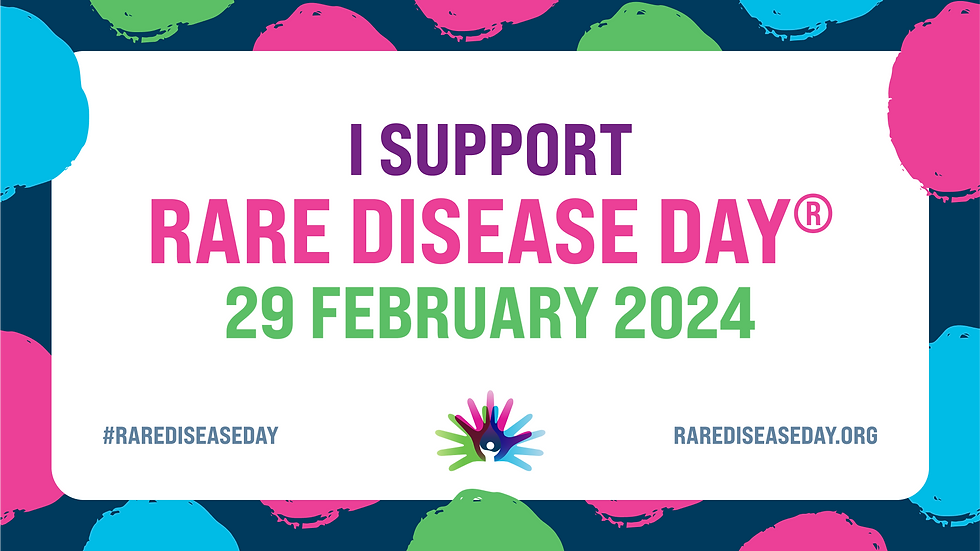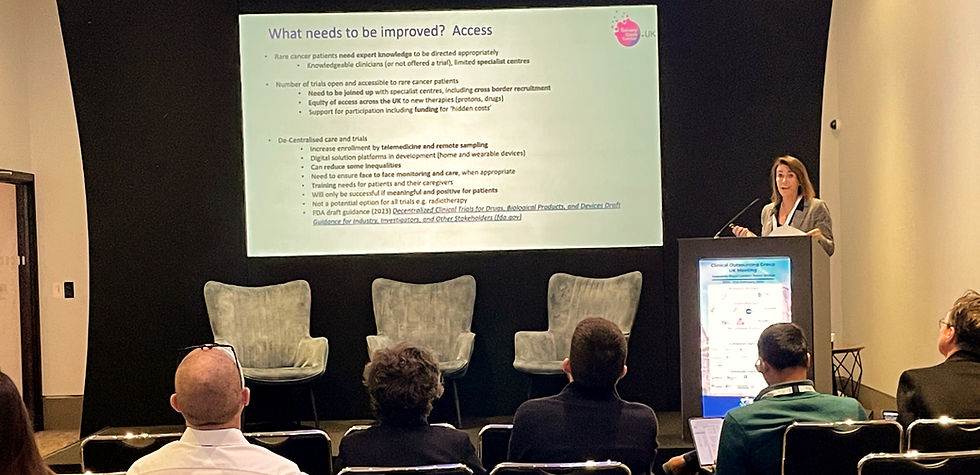- David Jones

- Feb 27, 2024
- 2 min read
Supporting Rare Disease Day 2024: Improving Clinical Trials in the UK

February 29th marks the annual Rare Disease Day, observed as a way of raising awareness and generating change for the 300 million people worldwide living with a rare disease, as well as their families and carers. Since its creation in 2008, Rare Disease Day has played a critical part in building an international rare disease community that is multi-disease, global, and diverse– but united in purpose.
At last week's COG UK conference, Emma Kinloch, Founder of Salivary Gland Cancer UK, presented ways to improve rare cancer clinical trials to better meet patient needs. Emma drew on her extensive experience as a patient advocate across multiple rare cancer organisations.

The presentation focused on four key areas for improvement: access, design, patient needs, and data. Key challenges identified include limited trial availability and accessibility, suboptimal trial design, lack of diversity and engagement with patient populations, and siloed data.
Proposed solutions emphasized decentralizing trials through telemedicine and home monitoring to increase access, using innovative trial designs tailored to small patient populations, engaging patient groups early and consistently in trial development, and sharing/aggregating data across platforms. Real-world examples demonstrated feasibility and impact.
Key Takeaways
Increase trial accessibility through decentralized models and remote participation options
Design trials specifically for rare cancer patient populations using innovative approaches
Prioritise diversity and understand target patient population needs early through collaboration
Harmonise data collection/sharing across trials and with patient registries
Utilise real-world evidence to inform trial design and expand treatment options
Emma's presentation made a compelling case for improving the clinical trial landscape to better serve the needs of rare cancer patients in the UK. Key will be multi-stakeholder collaboration centred on patients.
Comments